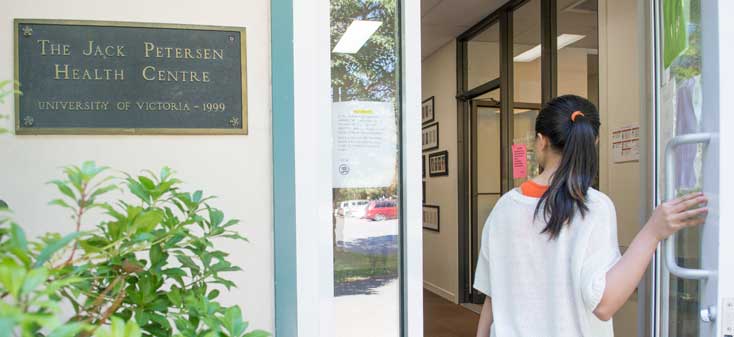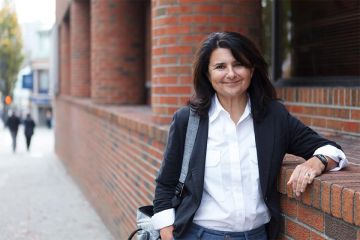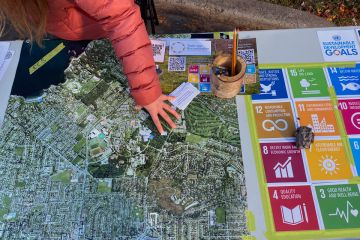''PIT'' crews reduce psychiatric wait times for students

A pilot project for treating students with acute mental health issues through University of Victoria Health Services has significantly reduced wait times, allowing at-risk students to get the help they need more quickly.
Some students suffer from acute anxiety, stress or depressive feelings that can significantly affect them academically and socially. University health services offers primary care and mental health care for students in crisis and helps them to access resources on campus and in the community. Yet, the wait times and limited access to psychiatry were a concern for the family doctors at the university health services clinic.
Since the Psychiatrist-led Interdisciplinary Team (PIT) project began in 2013, the integrated and collaborative approach has reduced wait times by more than half.
Using the concept of a “pit crew” team, a family doctor and psychiatrist arrive at a designated time to see the student, such as a pit crew does in a car race.
The 30-minute PIT appointments are efficiently structured to incorporate the family doctor’s knowledge of and experience with the patient with a psychiatrist’s immediate assessment and care planning. Full psychiatric consultations are scheduled if a more comprehensive review is needed.
“The university is always looking for ways to efficiently and effectively use the limited resources we have, in supporting a population that has very specific needs,” says Judy Burgess, director of University Health Services.
“Many mental illnesses first present and are diagnosed when people are young adults, which is when students are encountering academic and social challenges at universities. The university offers programs and support services that try to be responsive to students’ needs or connects them to community resources. We also know those needs are varied, complex and change through a student’s time at school.”
Psychiatrist and project lead Marilyn Thorpe is encouraged by the results. Since 2013, wait times have significantly dropped from an average 43 days to see a psychiatrist to 11 days in 2015 for a PIT appointment and 23 days for a full psychiatric consultation. At the same time, psychiatric resources could be re-allocated to support continuing care. Family doctors also gain additional knowledge and skill through the PIT appointment to increase their capacity to deliver mental health care.
“To our knowledge, this integrated team approach is not being used on other Canadian campuses or in family practices in general. PIT holds great promise for adoption in any number of places,” says Thorpe.
Thorpe says she was inspired by a 2012 TED Talk by American surgeon Atul Gawande who discussed the idea of having specialists all in one place to craft a medical care plan as more efficient than a patient seeing multiple doctors and having several tests over many appointments.
The PIT project funding was provided by the Specialist Services Committee, one of four joint collaborative committees that represent a partnership of Doctors of BC and the BC Ministry of Health. It has enhanced UVic’s comprehensive Student Mental Health Strategy, launched in 2014 as part of the university’s ongoing efforts to support positive student mental health and well-being and enhance students’ potential for success, says Burgess.
In a national survey conducted earlier this year, 64 per cent of UVic students said they suffered from dysfunction caused by anxiety and 44 per cent from depressive feelings within the past 12 months. The American College Health Association National College Health Assessment results were similar to those at other Canadian institutions.
-- 30 --
Photos
Media contacts
Denise Helm (University Communications + Marketing) at 250-721-7656 or dhelm@uvic.ca
In this story
Keywords: mental health, health, counselling, student life
People: Marilyn Thorpe, Judy Burgess











